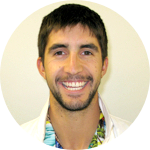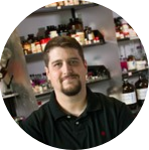About This Project
Help support our continued research of groundwater quality as a function of increased natural gas extraction activity.
Ask the Scientists
Join The DiscussionWhat is the context of this research?
The main question surrounding the issue of hydraulic fracturing and this revitalized method of natural gas extraction, is whether it is contributing to contamination of the surrounding groundwater. Previously, myself and a research team from the University of Texas at Arlington initiated a study of 100 private water wells in the Barnett shale region of the Dallas-Ft.Worth metropolitan area. By measuring a series of physical, biological and chemical parameters from each well and comparing these observations to their geospatial orientation to surrounding gas wells, we were able to establish a preliminary understanding of the relationship between hydraulic fracturing and instances of groundwater contamination. Unfortunately, due to the prevalence of natural gas extraction in the Barnett shale prior to our experiments, we were able to establish a baseline set of measurements and had to rely on an outside dataset to serve as our historical reference. As such, we have initiated a second study looking at groundwater quality in Cline Shale of the Permian Basin Region. In this study we are performing a time-lapse analysis of groundwater quality as a function of hydraulic fracturing activity. So far we have collected before drilling samples and we will soon be collecting during and after drilling samples. Measuring groundwater quality as a function of increased industrial activity will give us the most direct evidence as to whether hydraulic fracturing is affecting the surrounding groundwater.
What is the significance of this project?
The practice of hydraulic fracturing during natural gas extraction is a highly contentious and controversial issue that has plenty of public and celebrity opinion but is severely deprived of scientific data. Since 2011 we have dedicated ourselves to providing data on this issue and now, by performing a time-lapse analysis of groundwater quality as a function of increased natural gas extraction activities, we have the opportunity to provide the most direct evidence of the environmental effects of hydraulic fracturing. We have developed a series of analytical panels to help quantify the influence of natural gas extraction on the surrounding environment by: A) quantifying the absolute levels of 26 different metals and minerals, B) detecting the presence of 33 different chemical compounds known to be used in the hydraulic fracturing process, C) quantifying the levels of Total Organic Carbon (TOC) and Total Nitrogen (TN) as part of the time-lapse look at whether exogenous compounds have be introduced over time, and D) measuring toxicological response in a eukaryotic system putting the cumulative effect of detected constituents, into a biological context.
What are the goals of the project?
The requested funding will facilitate 4 trips for sample collection over the course of 12 months, including the collection of our 59 "during" natural gas extraction samples and the collection of our 59 "after" natural gas extraction samples. Additionally these funds will allow us to purchase reagents for the toxicological assays, pay for analysis costs for using Gas Chromatography Mass Spectrometry (GC-MS), Headspace Gas Chromatography Flame Ionization Detection (HS-GC-FID), Inductively Coupled Plasma Optical Emission Spectrometry (ICP-OES) and TOC/TN equipment at our analytical core facility, and help fund a graduate student to perform the analyses for one semester.
Budget
Research consummables and graduate student stipend
Meet the Team
Affiliates
2012 Post-Doctoral Fellowship (Oncology), UT Southwestern Medical Center, Dallas, TX 2010 Ph.D.(Biochemistry), University of Texas at El Paso, El Paso, TX 2007 B.S. (Biology), University of Texas at El Paso, El Paso, TX
Team Bio
I began my research career investigating the development of hormone-dependent cancers and leukemia, but in 2011, saw an opportunity to study a topic with far more questions than answers. Hydraulic fracturing and its use in unconventional natural gas extraction is a highly contentious issue, unfortunately fueled mostly by opinion, relatively devoid of scientific data. I and a couple of my friends saw this as an opportunity and initiated a study of 100 private drinking water wells within the Barnett Shale, a geological formation teeming with natural gas extraction activity.Through an active partnership with Dr. Brian Fontenot, Dr. Kevin Schug, the Shimadzu Center for Advanced Analytical Chemistry, Assure Controls and Geotech Environmental Equipment we completed the study, which was recently published in the Journal of Environmental Science and Technology. Our collaborators graciously provided equipment and reagents, and we performed all the sample collection, analysis and interpretation for free as a pro bono effort to provide data on this important issue.
We are continuing to study this topic in the Cline Shale of the Permian Basin region, where we are performing a time-lapse analysis of groundwater quality as a function of increased natural gas extraction activities.
Doug Carlton
2009-Current Ph.D. candidate in Analytical Chemistry at the University of Texas at Arlington...Kevin Schug
An Associate Professor and Shimadzu Distinguished Professor of Analytical Chemistry at University of Texas at Arlington...Zacariah Hildenbrand, Ph.D.
I began my research career investigating the development of hormone-dependent cancers and leukemia, but in 2011, saw an opportunity to study a topic with far more questions than answers. Hydraulic fracturing and its use in unconventional natural gas extraction is a highly contentious issue, unfortunately fueled mostly by opinion, relatively devoid of scientific data. I and a couple of my friends saw this as an opportunity and initiated a study of 100 private drinking water wells within the Barnett Shale, a geological formation teeming with natural gas extraction activity.
Through an active partnership with Dr. Brian Fontenot, Dr. Kevin Schug, the Shimadzu Center for Advanced Analytical Chemistry, Assure Controls and Geotech Environmental Equipment we completed the study, which was recently published in the Journal of Environmental Science and Technology. Our collaborators graciously provided equipment and reagents, and we performed all the sample collection, analysis and interpretation for free as a pro bono effort to provide data on this important issue.
We are continuing to study this topic in the Cline Shale of the Permian Basin region, where we are performing a time-lapse analysis of groundwater quality as a function of increased natural gas extraction activities.
Doug Carlton
2009-Current Ph.D. candidate in Analytical Chemistry at the University of Texas at Arlington...Kevin Schug
An Associate Professor and Shimadzu Distinguished Professor of Analytical Chemistry at University of Texas at Arlington...Doug Carlton
Affiliations:
2009-Current: Ph.D. candidate in Analytical Chemistry at the University of Texas at Arlington
2005-2009: B.S. Chemistry from East Texas Baptist Univ.
I've always found myself being a selfless team player throughout the years. Whether it was tutoring the University's future Female Scholar Athlete or spending 4 years as an NCAA football offensive lineman, a vital yet unglorified position, I found myself looking at the lasting benefit of my efforts rather than the sacrifices. This eventually allowed me to become part of a multi-discipline research team monitoring groundwater across our region of heavy natural gas extraction. This later expanded into more opportunities to learn and inform others about the influence that natural gas extraction is having on the environment.
Kevin Schug
Kevin is an Associate Professor and Shimadzu Distinguished Professor of Analytical Chemistry in the Department of Chemistry and Biochemistry at the University of Texas at Arlington (UTA). He is also the Director of the Shimadzu Center for Advanced Analytical Chemistry, part of the Shimadzu Institute for Research Technologies, at U.T. Arlington.
Dr. Schug received his B.S. degree in Chemistry in 1998 from the College of William and Mary, and his Ph.D. degree in Chemistry from Virginia Tech in 2002 under the supervision of Prof. Harold M. McNair. From 2003-2005, he performed post-doctoral research in the laboratory of Prof. Dr. Wolfgang Lindner at the University of Vienna in Austria.
Since joining U.T. Arlington in 2005, his research has been focused on the theory and application of separation science and mass spectrometry for solving a variety of analytical and physical chemistry problems. He is currently pursuing two main research threads with some intertwined aspects:
1) Fundamental studies of chromatographic separations and mass spectrometry ionization mechanisms
2) Isolation, characterization, and trace analysis of bioactive compounds in complex matrices
Financial support for this research has been from U.T. Arlington, Eli Lilly and Company, Texas Parks and Wildlife Department, the National Institutes of Health, and the National Science Foundation.
He has received the 2009 Emerging Leader in Chromatography award given by LCGC magazine, an NSF CAREER award, the 2009 Eli Lilly and Company ACACC Young Investigator Award in Analytical Chemistry, and the 2013 American Chemical Society Division of Analytical Chemistry Young Investigator in Separation Science Award. He is a member of the Editorial Advisory Board of LCGC Magazine and Analytica Chimica Acta and he is a Senior Editor for Journal of Separation Science.
Brian Fontenot
I graduated with a Ph.D. in Quantitative Biology in 2009 from the University of Texas at Arlington. From 2009 to 2010 I worked as an NIH-funded postdoctoral fellow for Indiana University and the University of Texas at Arlington working on microarray and genomic analyses of the Red Flour Beetle. I continue to work with the Departments of Biology and Chemistry and Biochemistry at the University of Texas at Arlington as an affiliated researcher. I currently work for the Environmental Protection Agency in the nonpoint source pollution program where I serve as a technical advisor to the states of Arkansas and New Mexico, helping them administer their state nonpoint source pollution control programs. My past research has focused on speciation and hybridization in toads and genomics in beetles, but I received an opportunity to join a dynamic team of researchers in order to evaluate water quality in areas of natural gas extraction in the Barnett Shale formation of Texas. In my capacity as an affiliated researcher with the University of Texas at Arlington, I played a role in carrying out a study of private well water quality in the Barnett Shale that was recently published in the journal Environmental Science and Technology. My colleagues and I have found this work to be immensely rewarding, but also rife with questions that need to be answered. To begin to answer these questions, we have embarked on a study of the Cline Shale in the Permian Basin region of Texas. This study will enable us to examine groundwater quality in private wells sampled before, during, and after natural gas extraction activities take place providing a time series analysis that will ultimately provide valuable information on whether or not natural gas extraction impacts shallow groundwater. We greatly appreciate your interest and hope that you'll be able to play a role in helping us finish this important research!
Additional Information

Project Backers
- 16Backers
- 10%Funded
- $1,805Total Donations
- $112.81Average Donation









